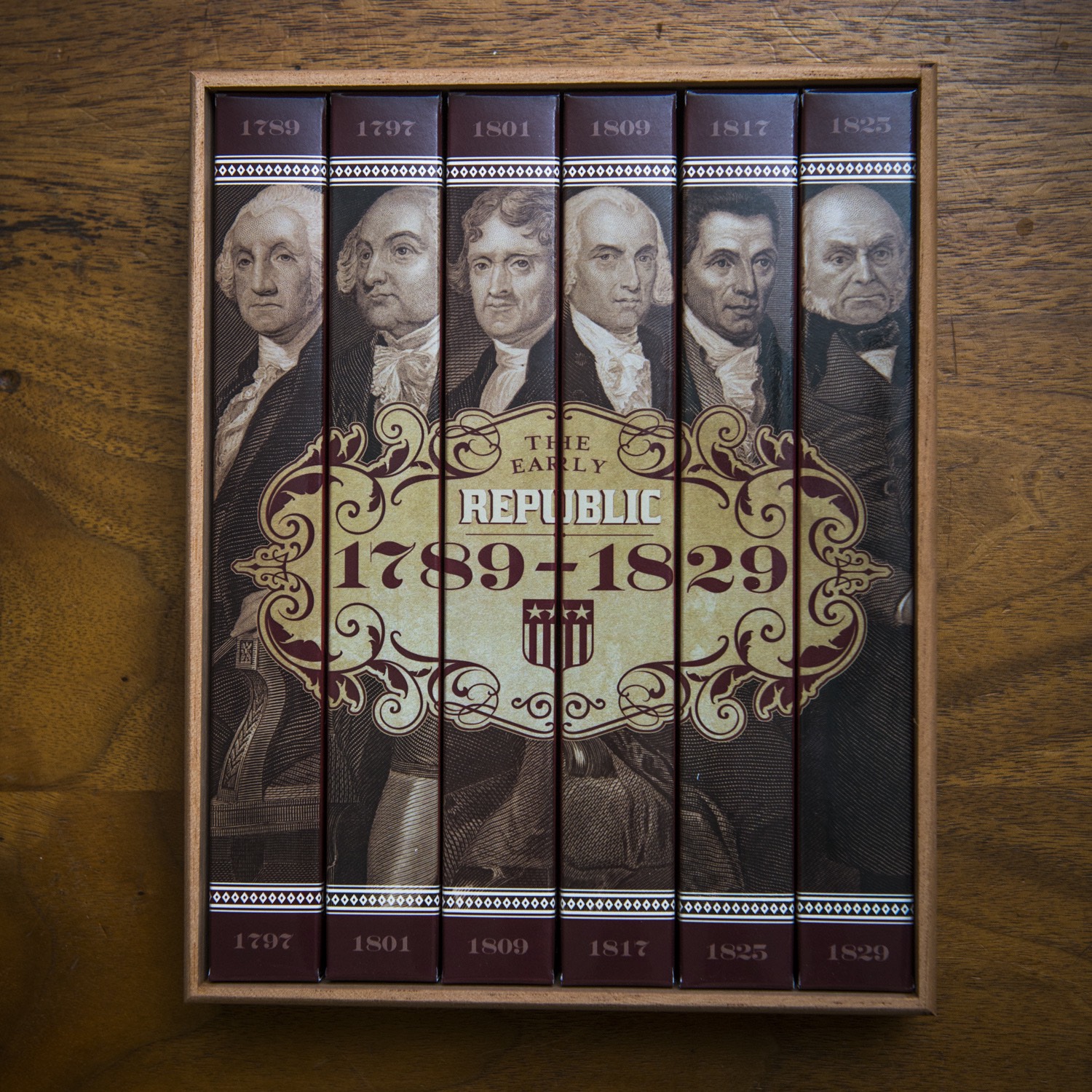John Quincy Adams
1825-1829
Vitola
Toro
Size
50 x 6
Body
Medium
Wrapper
Ecuador Desflorado Natural
Binder
Sumatra
Filler
Habano (Nicaragua) & Piloto Cubano (Dominican Republic)
President John Quincy Adams (1825-1829)
Business tycoon, community organizer, one term senator, one term governor, two term governor, state attorney general—that constitutes the sum of political experience of the last four Presidents of the United States before they became President. John Quincy Adams, before he became the sixth President served as U.S. Minister to the Netherlands, U.S. Minister to Prussia, U.S. Senator, U.S. Minister to Russia, Envoy to the United Kingdom, and eight-term member of the House of Representatives. That does not count his role as secretary to the Minister to Russia at the age of 14-17. He was fluent in Dutch and French and understood German and significant amounts of Russian. He mastered Latin and Greek and translated the entire New Testament. Adams spent significant time in eight different European nations and wrote about them. He kept a diary from 1779 to 1848. Needless to say, John Quincy Adams was the most experienced, well-read, and brilliant man who ever entered the presidential office. He was described as a chip off the old ice-berg, as son of President John Adams.
Born in Braintree, Massachusetts, John Quincy was the oldest son of Lawyer John Adams, who became one of the most important founding fathers of the United States. As part of his son’s education, Adams took him on diplomatic missions to Europe after he had received basic tutoring at home. He attended a couple European Universities but later graduated from Harvard, acquiring his law degree and joining the bar shortly thereafter. He was appointed Minister to the Netherlands at age twenty-six by George Washington, but had to be persuaded by his father to accept, since he preferred reading at home to travel and political activities. On one of his trips abroad he married a merchant’s daughter in London, one of only two American Presidents to marry a foreign-born woman (President Trump is the other).
Adams was appointed to the Senate from his home state but during his service in Washington D. C., he supported Jefferson’s Louisiana Purchase and the Embargo against Great Britain, costing him his Federalist Senate seat. He joined the Republicans. Although he declined the presidency of Harvard, he agreed to teach there for several years till appointed as the first Minister to Prussia and then the Court of St. James in London. Amassing contacts and influence that uniquely qualified him as the premier foreign policy expert in America, John Quincy Adams served as James Monroe’s Secretary of State for eight years. He settled the boundary dispute with England over the Canadian border, marking a turning point in U.S.-British relations. He negotiated the treaty with Spain, acquiring Florida and authored the Monroe Doctrine, defining American foreign policy for more than eighty years, regardless of the party in power.
Elected to the Presidency in his own right in 1824, Adams advocated various “internal improvement” projects, the pursuit of which would become a central goal of the up and coming Whig Party, which morphed into the Republican Party in 1854. He of advocated protective tariffs, coddled New England industry and opposing slavery, infuriating Southern Democrats. Andrew Jackson defeated Adams in 1828 for the Presidency, but the indefatigable “puritan” returned to Congress to battle against slavery, oppose the annexation of Texas and the war with Mexico, fighting to oppose many of the policies of his successors. He collapsed on the floor of the House in 1846 from a stroke. He recovered enough to return to the Congress, but died in 1848 after collapsing again, from what proved to be a fatal cerebral hemorrhage.
Adams possessed conservative instincts though he at times abandoned them on principle, as in the slavery controversies. He was socially awkward, like his father, but he was admired for his brilliance and foresight, as well as his keen definition of America’s real interests abroad. The first President to wear long pants, cut his hair short, and have his photo taken, John Quincy Adams was the only President to return to public service in Congress and literally fight to the death for the principles he held to be virtuous and protective of independence and liberty.



